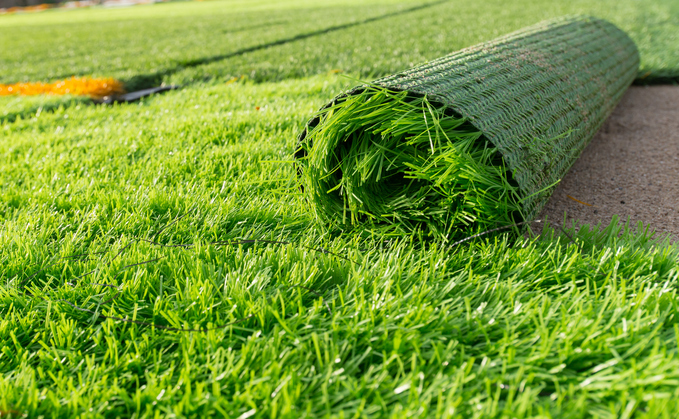Advertising watchdog warns Easigrass not to claim artificial grass 'products were environmentally friendly if that was not the case'
A UK manufacturer of fake grass has been rapped by the UK's advertising watchdog on the grounds its marketing materials misled consumers over the green credentials of plastic grass.
In a ruling published this morning, the Advertising Standards Authority (ASA) said Easigrass had failed to provide evidence an artificial grass line dubbed Kensington Eco was in fact eco-friendly. It also said claims that the range was "fully recyclable", "offers a range of environmental benefits", and "ticks all the environmental boxes" had not been fully substantiated.
The ruling, which pertained to a Facebook post published by Easigrass last June and marketing copy which ran on its website in October, comes after five complainants challenged the company's claims.
Typically made from fossil-based synthetic fibres such as nylon or polypropylene, artificial grass is notoriously hard to recycle and has been linked to microplastic pollution and negative impacts on biodiversity.
Justifying its claims to the ASA, Easigrass said the Kensington Eco range had an alternative backing which enabled the product to be "completely recyclable", making it more environmentally friendly than other types of artificial grass available to customers today.
The company said green claims around the grass' environmental benefits referred to the product not requiring water and upkeep with chemical products such as pesticides.
But the ASA pointed out that there is currently only one recycling centre in the UK that can recycle products with the coating applied to the Kensington range, meaning it would not be possible for most consumers to recycle the product.
"As we were not provided with sufficient evidence of the recyclable nature of the coating, and because of the lack of existing UK infrastructure to process the product, we concluded the ad was misleading," the ruling notes.
The ASA also said the company's green claims had failed to demonstrate that artificial grass had a positive impact on the environment across its full lifecycle. And the watchdog noted the product would have a "detrimental impact on biodiversity", as it would be used to replace real grass.
Researchers and campaigners have warned synthetic grass contributes to climate change and nature loss, because it absorbs significantly more solar radiation than actual grass and displaces living plants that act as carbon stores and provide food and shelter for insects and other animals.
"The ads must not appear in their current form," the ruling states. "We told Easigrass (Distribution) Ltd to ensure their marketing communications did not mislead as to the ease of the recycling of their products and did not imply their products were environmentally friendly if that was not the case."
In its response to the ASA, Easigrass said it would remove Eco from the product name and remove the wording "recycling" and "ticks all environmental boxes" from the ad. BusinessGreen reached out to the firm for a comment.
The ruling comes as the ASA continues its crackdown on unsubstantiated environmental claims as its seeks to tackle corporate 'greenwash'. For example, in rulings against Etihad, Air France-KLM, and Lufthansa in December, the watchdog said there was no scope for airlines to make absolute green claims, and last month it banned two car adverts over claims electric vehicles were zero emisisons, concluding the term had not been sufficiently substantiated to distinguish between tailpipe emissions and supply chain emissions.
Could you or a colleague be recognised at the inaugural Women in Green Business Awards? You can submit your nominations for the awards now.









